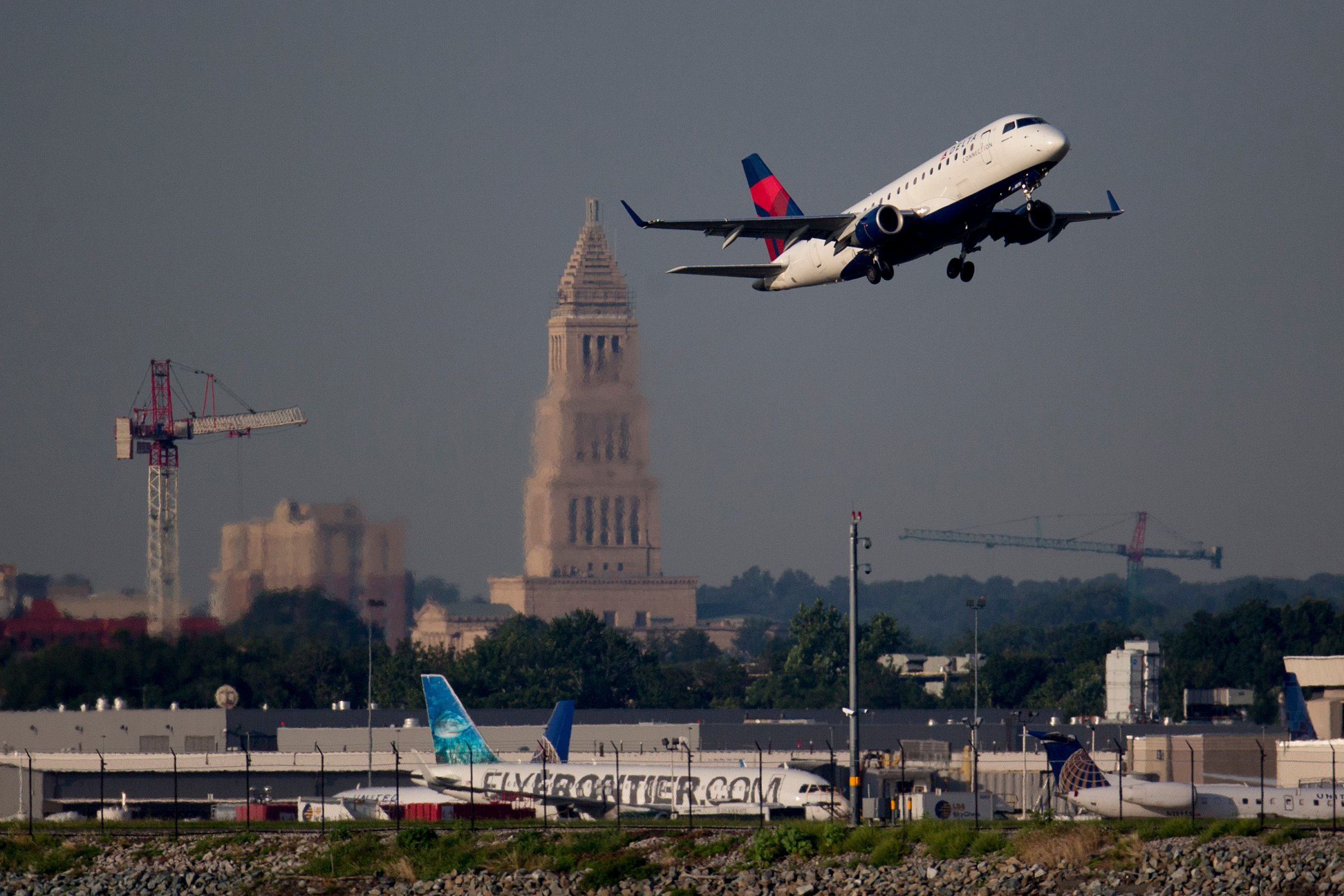
Airlines’ profits have been, yes, taking off this year, and the industry doesn’t seem inclined to change that flight path. The big carriers announced a $4 per ticket price increase Tuesday, even as falling jet fuel prices were delivering an unbudgeted bonus. Although it’s not unusual for a carrier’s announced price increase to get withdrawn when a competitor decides not to play ball, there doesn’t seem to be much resistance to Tuesday’s news.
Were you expecting the carriers to have mercy on you, given that flights are stuffed, there are upcharges for everything from baggage to overhead space to boarding early, and passengers are staging midair cage fights over knee room? Get real. As one airline consultant told me about a year ago, the semi-romantics who used to run the airlines are long gone. Instead, the folks in charge today play hardball. They are running a business, not their advertising agency’s image of air travel.
With seats in shorter supply domestically, that means pricing is going to remain tight. In Delta’s most recent quarter, for instance, its passenger yield — a measure of the average fare paid — increased 1.9%. The company’s results had Richard Anderson, Delta’s chief executive officer, crowing: “While we have more work ahead of us to achieve our long-term financial goals, we expect a record fourth quarter of 2014 with an operating margin of 10%-12%. For the full year, we expect a pre-tax profit in excess of $4 billion.” That’s following a record year last year.
Delta, like other carriers, is managing costs tighter and benefitting from the slide in oil prices. In its most recent quarter, Delta’s fuel cost declined by $23 million. According to the industry trade group A4A, a penny a gallon decrease over a year saves the carriers $190 million. Delta expects fuel to drop from $2.90 a gallon to between $2.69 and $2.74 a gallon in the current quarter.
Delta notes that there are three major drivers of airline economics: aircraft maintenance, ownership cost and fuel cost. The first two are fairly predictable costs that management has some control over. Fuel is a variable cost with a capital V. When oil was soaring, the airlines were losing billions and eventually were driven into bankruptcy. They have emerged, recapitalized and rationalized: they can make money even with much higher fuel costs. But they can make a lot more money with lower fuel costs as well as by raising prices. There is no reason not to do both. “Domestically, clearly we are in an environment where the carriers are rational, and financially motivated,” American Scott Kirby told analysts recently. ” In other words, don’t expect any free drinks any time soon.
More Must-Reads From TIME
- What Student Photojournalists Saw at the Campus Protests
- How Far Trump Would Go
- Why Maternity Care Is Underpaid
- Saving Seconds Is Better Than Hours
- Welcome to the Golden Age of Ryan Gosling
- Scientists Are Finding Out Just How Toxic Your Stuff Is
- The 100 Most Influential People of 2024
- Want Weekly Recs on What to Watch, Read, and More? Sign Up for Worth Your Time
Contact us at letters@time.com